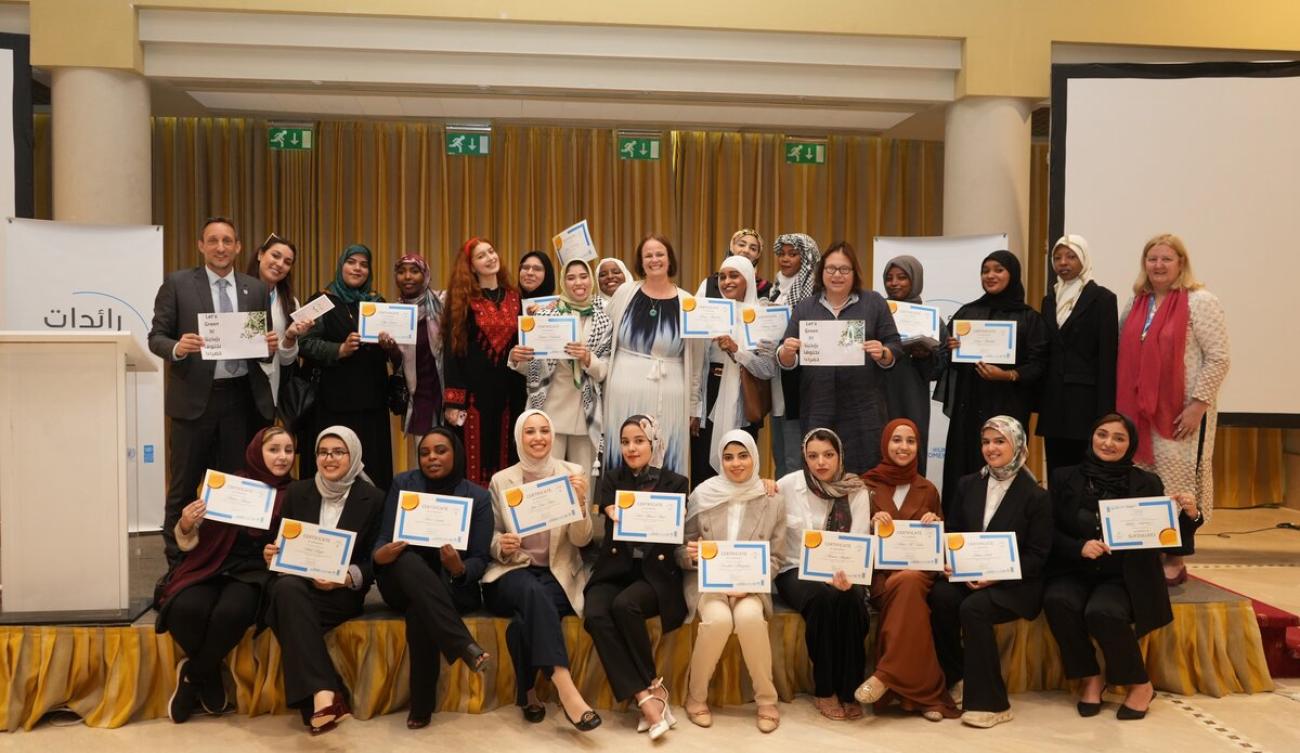TRIPOLI – 5 June – Twenty-six young women from across Libya graduated from the UNSMIL-led training programme by presenting their final projects focus on educating school children on climate change to the Minster of Women, the Ministries of Youth and Education, embassies and Deputy Special Representative of the Secretary General
The graduation ceremony, which was held on World Environment Day, saw five teams of young women present their different climate change awareness campaigns which, through UNICEF support, will be used by the Ministry of Education to educate school children across Libya.
“The Ra’idat programme was launched with a clear vision: to empower youth, specifically young women, to take an active role in shaping their futures, the futures of their communities, and by extension the future of Libya,” said DSRSG Gagnon. “By equipping young women with the tools to influence decision-making processes, we are investing in leaders to steer policymakers, mitigate drivers of conflict, and drive meaningful change for positive outcomes.”
During the last year thirty young women aged 18-30 have attended trainings every two months to build their communication, leadership and advocacy skills, and increase their knowledge of elections, human rights and women’s legal rights in Libya.
"We aim to contribute to environmental preservation and empower the new generation to shape a greener future,” said Nour Ahmed Amir, 24 from Zawiya. “Our goal is to ensure these children grow up with a better, more sustainable landscape than the one we had,” added Meeleen Alezabi, 28 from Zwara and a mother to three young children.
All the campaigns supported the Sustainable Development Goal 13 of climate change, and ranged from increasing recycling of plastic waste, protected the coastline environment of Tripoli, greening the school environment with more trees, and ensuring water supplies to schools were protected. One campaign developed a Libyan environmental super hero – Mudawwir – who would help the children engage with the idea of increased plastic and organic waste recycling.
By raising awareness about climate change among schoolchildren, these girls are planting the seeds for a more environmentally conscious generation, which is not just a Libyan generation but a global one, and this is essential for sustainable peace, added DSRSG Gagnon.
"As this training comes to an end, I feel a strong sense of responsibility to apply what we have learned to benefit our communities and colleagues in both our professional and personal lives,” said Aisha Miloud, 26 from Tripoli.
Many of the young women said that training had improved their skills, professional lives and confidence.
“We arrived on the first day as 30 strangers from different cities and backgrounds. Today, we graduate as 30 sisters who have learned as much from each other as we have from the training,” added Salsabeel Al-toushi, 19 from Zuwara.
The women will continue their involvement with the Ra’idat programme by becoming mentors to the next cohort of young women who will begin training in September. Applications for the training course open in July.





